- Home
- Paul Finch
Craddock Page 2
Craddock Read online
Page 2
Cigar smoke wafted around him, further browning the low ceiling, the heavy book spines lining the shelves. Outside, the icy downpour continued, thundering on the tiles and window panes, plunging like a cataract into the flooded barrack yard.
At length, Inspector Munro entered, unbuttoning his coat. He hung his drenched bowler on the rack by the door, then tossed a notebook on to the major’s desk.
“James O’Hare was not a popular fellow,” he said.
Craddock nodded. “You do surprise me.”
Munro dragged up a chair and sat. “Quarrelsome, especially in his cups, which was most of the time. He was also in money disputes with several different firms. Once, he had to be ejected from the premises of Balder & Sons for making a nuisance of himself. Said they owed him wages. They denied it.”
Craddock considered. “Criminal associates?”
Munro gave his senior a blank stare. “Surprisingly, none known.”
Equally blank, the major stared back. “Tell me another one, Jack. He was a carter, for God’s sake. He must at least have had form for handling?”
Munro shook his head. “None known, as I said. All previous convictions drink related.”
“Domestic situation?”
“Unmarried. Single child. Parents sent him over here with his uncle in 1845. Uncle’s been dead nine years.”
The major drew on his cigar. “Any intelligence on who he might have been socialising with last night?”
The inspector shrugged. “Still working on that one.”
“I want names, Jack. Any you don’t like, lock ‘em up. We’ll speak to them in here.”
“Sir. “ Munro nodded, rose to his feet.
“Jack?”
The inspector turned as he opened the door. “Sir?”
Craddock fixed him with those cool grey eyes. “What does it take to snap a man’s neck?”
Munro considered. “Brute strength, I suppose.”
“And?”
“Skill, maybe.”
“More skill than the average railway worker or collier?”
Slowly, Munro nodded. “Possibly. Couldn’t rule them all out, though.
There are some very strong working men in this town. Some of them will have had military training.”
The major nodded, then waved the inspector away. Much as he’d thought. It wasn’t going to be an easy enquiry.
He was certainly right on that score, because enquiries were still going on a week later – when the killer struck a second time.
Once again the victim had been manually strangled, with terrifying force. Once again the victim was Irish, and a drinker to boot. Once again the foul deed had been done in the deprived Scholes district, the broken corpse left where it had fallen. There, however, the similarities ended.
Kathleen McConnolly, to begin with, was female – and when a female died at the hands of a maniac, there was usually only one reason for it. By the same token, this slaying had occurred in the early evening, and had been discovered no later than nine o’clock. Not that Major Craddock was convinced by these arguments. In fact, even before he arrived at the crime scene, he had a gut feeling he’d be surveying the work of the same ruthless hand.
He made his way there in company with Inspector Munro, through a maze of squalid backstreets, some so narrow that two men couldn’t walk abreast. All manner of refuse strewed the muddy footways – waste paper and rags, rotted food, broken bricks, human slops. Everything, it seemed, was caked in soot, while some alleys ran under railway lines, becoming pitch-black tunnels alive with rats and cockroaches. On all sides, doorways gave in to dens of misery and degradation. Flickering candles showed damp and tiny rooms, where emaciated children, clad in tatters, huddled together for warmth. In others, men doused in coal dust slapped at their women or slumped at tables, drinking from bottles. Others stood on the step, glaring out. Even in the chill October night, the cloying air stank of coke and sweat and human faeces. It rang with coarse Irish accents, many in the tongue of their native homeland. Most, it seemed, were swearing, or laughing drunkenly, or sobbing aloud.
“Why do these people live like this?” Craddock said under his breath, pushing with his stick at a ragged shape lying in their path. “Out of the way, or I’ll arrest you for vagrancy!”
Muttering guttural threats, the drunk hauled himself to his feet and shambled into the shadows. More laughter came cackling down from above. Munro looked up nervously. Open windows overhung them at many points. At any moment, the contents of chamber pots could hurtle down.
He didn’t bother to reply to his superior’s question, for two reasons:
Firstly, because they both knew the answer. It was now nearly twenty years since the potato blight had bitten into rural Ireland’s economy, condemning the population to death if they didn’t seek their fortune elsewhere. Thousand upon thousand had taken that desperate option, arriving in England via the port of Liverpool, intending to find ship to America, but eventually being farmed out through their old foe’s industrial north, where there were canals to be dug, pits to be sunk, looms to be worked.
Secondly, because the senior officer didn’t mean it as harshly as it sounded. Inspector Jack Munro, once Captain John Munro of the 14th Light Dragoons, knew his commander’s temperament well; knew that the major’s ‘Chartist’ upbringing on a modest estate not many miles from another woebegone Lancashire town, Blackburn, had made a deep impression on him; knew that once his wife had died and his purpose in India ceased to be, the much decorated soldier had taken this post as police chief for no other reason than because he felt he could do some good. In many ways, though, Craddock was still a warrior. He sympathised with the struggling and downtrodden, but not with the abject surrender so many of them showed. ‘Fight back’ was his motto.
“I’m going to enjoy delivering this bastard to the Assizes,” the major said, gazing down on the strangled woman.
The lanterns of two constables cast a wavering glow on her filthied corpse. She was sitting against a wall at a junction of two alleyways, her head hanging at a hideous angle. Her ragged dress was in disarray, her greying hair in matted locks. Once again, the neck was blackened and torn by fingers of steel. The expression on her muddied face was almost too ghastly to look at.
“Has she been used?” Munro asked of the various constables gathered there. “Has anyone looked?”
Tough and granite-faced as they were, they shrugged sheepishly. It was easy to understand their dilemma. A multitude stared out down from surrounding upper storey windows; in all adjoining passages, dark groups were being held back. It wasn’t really the done thing for peelers to be caught peeping under a woman’s skirt, even if she had just been slaughtered by some demented person.
“The doctor can do that when he arrives,” the major said. He knelt beside the body, his face grave. His voice lowered to monotone. “Gentlemen – there is a monster among us. We must step very carefully from here on in. Inspector Munro, you will cancel all leave until this matter is settled.”
“Yes sir, of course.”
“You will also concentrate night-patrols on the Scholes district. I don’t mean to leave other areas unprotected, but this neighbourhood must have particular attention.”
Munro nodded.
“Now ...” The major rose to his feet. “We’ll need to speak to as many of these people as we can. We’ll start straight away.”
“Major Craddock, sir!” came a frantic voice.
All turned, to find one of the division’s youngest officers scrambling up a narrow ginnel toward them. He was red-faced, his helmet in his hand.
“It’s Constable Butterfield, sir!” he shouted. “He’s found a witness!”
Two minutes later, they had moved to one of the neighbourhood’s communal yards. Once again, rubble strewed it, much of it spilling from overflowing dustbins. In one corner, there was an outhouse, a rickety old structure knocked together from planks and nails. Constable Butterfield, his lantern on the ground, was leaning aga
inst it, speaking through a tiny gap.
“Come on, Roisin, love!” he was saying. “You know who I am. It’s PC Butterfield. I’m always round this neck of the woods. You can trust me.”
Craddock shouldered his way forward. The PC saw him and drew back. “It’s Roisin Lachlan, sir. She’s Kathleen McConnolly’s drinking partner. Or was. She won’t come out. She’s frightened half to death.”
“Sure she’s not just relieving herself?” someone wondered, to coarse chuckles.
“No jokes, please,” Craddock said sternly.
Butterfield certainly wasn’t laughing. “They’re always out together, them two, sir. On the game, if you want my opinion. Thing is, they sop up gin like rubbing rags.”
“What’s she saying?” Munro asked.
The constable scratched his head. “Well, she doesn’t speak English very well, I’m afraid. I can’t really tell.”
Craddock stepped back. “Alright – break the thing down.”
The constables went at it in a team, prying the rotted slats apart with their blackthorn staffs. A few moments later, Roisin Lachlan, shrieking hysterically, was being hauled out into the lamplight. She was a disgusting sight: gap-toothed, grubby-faced, hair white but filthy, and hung in rat-tails. Her bodice and many layered skirts were heavy with dirt, ripped full of holes.
“O Dhia, O Dhia …” she screeched. “Nil me ag iarraidh dul leis! Nil me ag iarraidh imeacht leis!”
It took the burly officers several minutes to restrain her, so frantic were her kickings. There were mutters of disbelief from the gathered crowd.
“Now, now come on Miss Lachlan,” Munro said, trying to be reasonable. Then she bellowed right in his face. He staggered backward. “Lord-God almighty – smells like a bloody still!”
“What happened, Miss Lachlan?” Craddock asked. “What did you see?”
“Nach dtuigeann sibh? An bhfuil sibh uile as bhur meabhar? Ta muid cailte. Leann se muid. Leann se muid an bhealac ar fad anseo!”
“What in Christ’s name is she gabbling about?” a constable wondered.
“Bhi a fhois agam gur e a bhi ann. Bhi se beag. Comh beag le paiste. Cheap Caitlin gur paiste a bhi ann. Chuaigh si thar n-ais chuige tar eis a d’imigh muid thairis. Cheap si go raibh se gortaithe. Ansim do leim se … A Thiarna, do leim se mar a dheineadh cat!”
Craddock turned to Munro. “Can any of these people translate for us?”
“She says he was small, sir,” came a wavering voice from behind. “Like a child.”
They turned. Sergeant Rafferty was there, gazing at the fevered woman with odd, haunted eyes. His normally ruddy face had paled to alabaster; his brow was beaded with sweat.
“Like a child?” Munro said, bewildered.
The big Irish sergeant listened as the woman gibbered on. If anything, he grew paler. “She ... she says that she and Kathleen McConnolly passed him in the alley. They thought he was hurt. Then he attacked them. I think after that she must have fled.”
“Get her to be more specific, Rafferty,” Craddock said.
The sergeant nodded, but before he could ask her anything else, she sprang savagely at him and had to be held again. Her hair was now in a frenzy, her eyes wide enough to burst from their sockets. She jabbed at Rafferty with a long, dirt-encrusted finger.
“Tusa! Ta a fhios agat-sa! Ta tu ar n-os muidine! Ta tu mar I gceanna linne! Is duine dar gcuid fein tu! Ta a fhios agat cad e seo! Ta a fhios agat!”
Rafferty never flinched from the tirade, but the sweat was now dripping from his brow. Only after several seconds did he turn back to the major. “She’s just babbling, sir. Not making sense.”
Craddock nodded. “Alright. Munro, get her to the office. See if you can calm her down.”
“She’s very drunk, sir,” the inspector said.
“I don’t give a damn. She’s not going anywhere ‘til she’s given us a full statement. Just make sure you don’t let her have anything else.”
Munro nodded and signalled to various constables, who began hustling the terrified woman away.
“Ta se thar n-ais chugainn!” she screamed, to the awed silence of the crowd. “Ta se linn aris! Togfaidh se muid ar fad leis!”
It was close on midnight, and Craddock and Munro stood alone in the great Gothic hallway of the infirmary mortuary. Green tiles arched high over their heads. A dank dimness hung at either end of the long, wide passage. Silence reigned.
“You know, there was a man guillotined in France, five or six years ago,” Munro finally said. “Dumollard, his name was. He’d killed ten women. Bludgeoned them to death, one after another, after luring them into a wood.”
Craddock glanced up. “What are you trying to tell me?”
“I’m just saying, it’s happened before.”
The major sniffed. “What did he kill them for? Did anyone bother to find out, before truncating him?”
“He was a thief, as far as I know. He wanted their clothes.”
“And you believe that?”
Munro shrugged. “That was the reason they gave.”
Craddock strode about, trying to press the creeping chill from his feet. “I doubt our man would get much for the clothes of his chosen victims.”
Munro nodded. “Just a thought. Course, we don’t even know the same man committed these murders yet.”
“Oh, I think we do,” put in the house surgeon, appearing at a side door. He was stripped to his waistcoat and watch-chain. His shirt-sleeves were rolled back, his forearms wet and soapy. He mopped them down with a towel. In the firelit chamber behind him, a figure lay on a slab, draped in a bloody sheet.
“Yes indeed, gentlemen,” he added, in his cultured Scottish accident. “I think we do. The injuries are virtually identical. Crushed windpipes, shattered neck vertebrae. A very strong person, with a very strong pair of hands.”
“Sexually molested?” Craddock wondered.
The doctor shook his head. “Not a trace.”
“Did he beat her?” Munro asked.
The doctor mused, then again shook his head. “A few abrasions and scratches. Nothing that wouldn’t have been caused by her dropping to the ground after he’d finished with her.”
“Our killer is efficient,” Craddock said.
“Worryingly so,” the doctor replied. “The James O’Hare death was no fluke, chief inspector. In neither case was there a fight. Scarcely a struggle, in fact. Once he’d got a grip on them, it was over. They didn’t stand a chance.”
Munro shook his head. “And he’s supposed to be small? Like a child?” He glanced at the major. “Or are we discounting that?”
Craddock turned sharply, striding from the hall. “We’re not discounting anything yet.”
Continued enquiries revealed little of immediate significance.
James O’Hare, it was suggested, could have been murdered by one of his many enemies. The physical way he had been mastered was difficult to explain, but then he’d been dead-drunk at the time. The only problem with this thesis was that no-one was prepared to name a name, not even in the teeming rat-holes of Scholes, where loyalty could be bought for a few tots of impure alcohol. The same was true of Kathleen McConnolly. Most of the people who had seen her that fateful day reported her as having been inebriated, staggering from one crowded gin house to another, her friend Roisin Lachlan loyally in tow. As with the James O’Hare case, there was no suggestion they had fallen foul of anyone in particular.
Over a period of days, the woman Lachlan became gradually more coherent, until at last Sergeant Rafferty was able to interview her properly. In mental terms, however, she was in a pitiful state, maintaining that her friend had been attacked by a child, or at least someone of a child’s stature. She herself had been too fuddled with drink to intervene, but not so that she didn’t remember the killer’s odd apparel. This was especially interesting, but also baffling. He’d been dressed like a monk, she said. Hooded – only in Hessian or sackcloth. It had covered his body entirely, but hadn’t encumbered him
so that he couldn’t leap at his victim like a tiger.
“You think nobody else would have noticed someone like that?” the major asked, as he and Rafferty left the lodging house where the petrified witness had buried herself.
He stopped to wipe his boots on the kerbstone. A passing beggar doffed his ragged cap. The major acknowledged him with a wave of his stick.
“People don’t notice much in this district, sir,” the sergeant said, standing by. “Too busy wallowing in their own misery.”
“Sympathy, Rafferty?” Craddock wondered, setting off down a narrow lane between rows of slum terracing.
The sergeant followed, eyes fixed ahead, mouth tight. “They’re my own people, sir. Brought here on false promises, most of ‘em. Expecting jobs, better standards of living. Paid their own way with what few coppers they had, in many cases. Found themselves in – this. Little better than slaves, and that’s the ones who’ve got work.”
The major lit up a cigar and puffed on it. “Emotional words for an Irishman who served in Queen Victoria’s army.”
“It was King George’s army when I joined up, sir.”
“That makes a difference?”
Still Rafferty gazed ahead. “There wasn’t no famine as such then, sir. People were in control of their own survival. If anything, things were worse over here. What with the cotton strikes and Swing riots.”

 Stolen
Stolen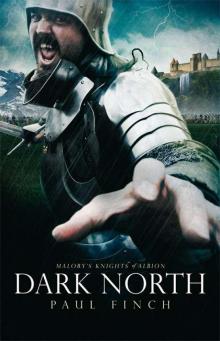 Dark North mkoa-3
Dark North mkoa-3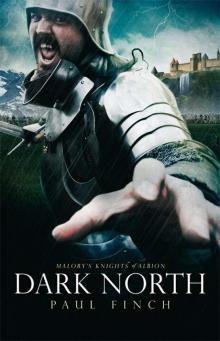 Dark North (Malory's Knights of Albion)
Dark North (Malory's Knights of Albion)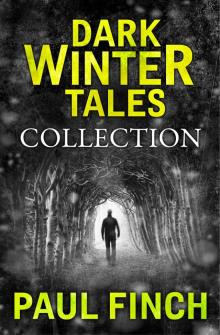 a collection of horror short stories
a collection of horror short stories Sacrifice
Sacrifice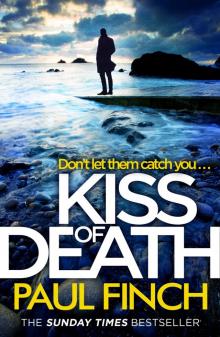 Kiss of Death
Kiss of Death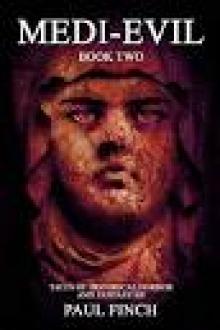 Medi-Evil 2
Medi-Evil 2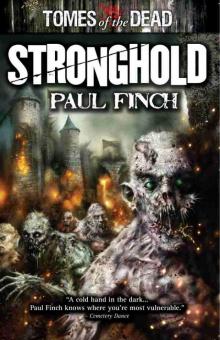 Stronghold
Stronghold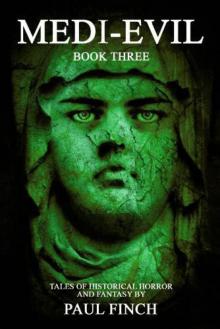 Medi-Evil 3
Medi-Evil 3 Dead Man Walking
Dead Man Walking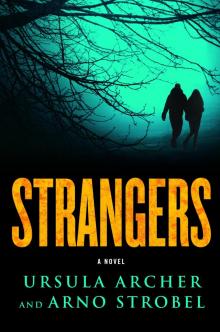 Strangers
Strangers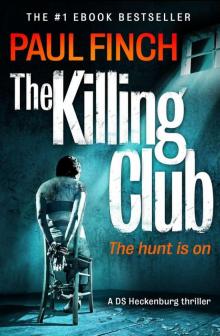 The Killing Club
The Killing Club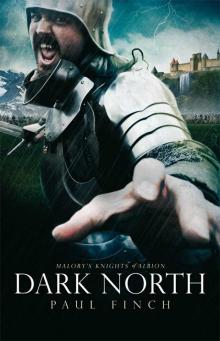 Dark North
Dark North A Wanted Man
A Wanted Man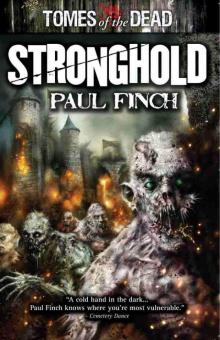 Stronghold (tomes of the dead)
Stronghold (tomes of the dead) Hunted
Hunted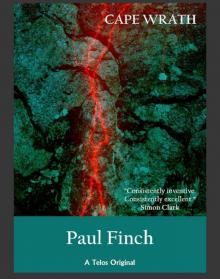 Cape Wrath
Cape Wrath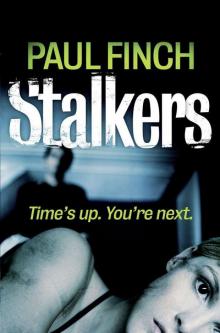 Stalkers
Stalkers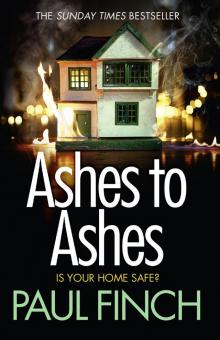 The Burning Man
The Burning Man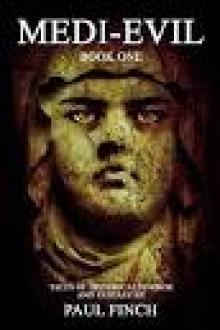 Medi-Evil 1
Medi-Evil 1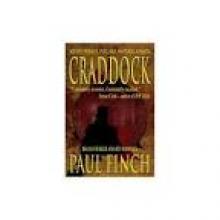 Craddock
Craddock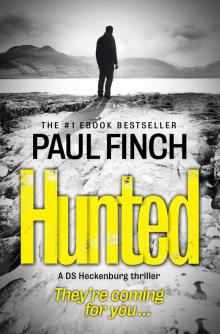 Hunted (Detective Mark Heckenburg Book 5)
Hunted (Detective Mark Heckenburg Book 5)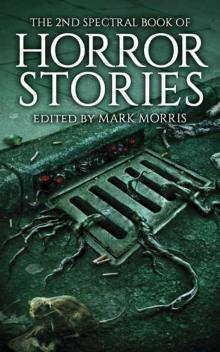 2nd Spectral Book of Horror Stories
2nd Spectral Book of Horror Stories The Chase
The Chase